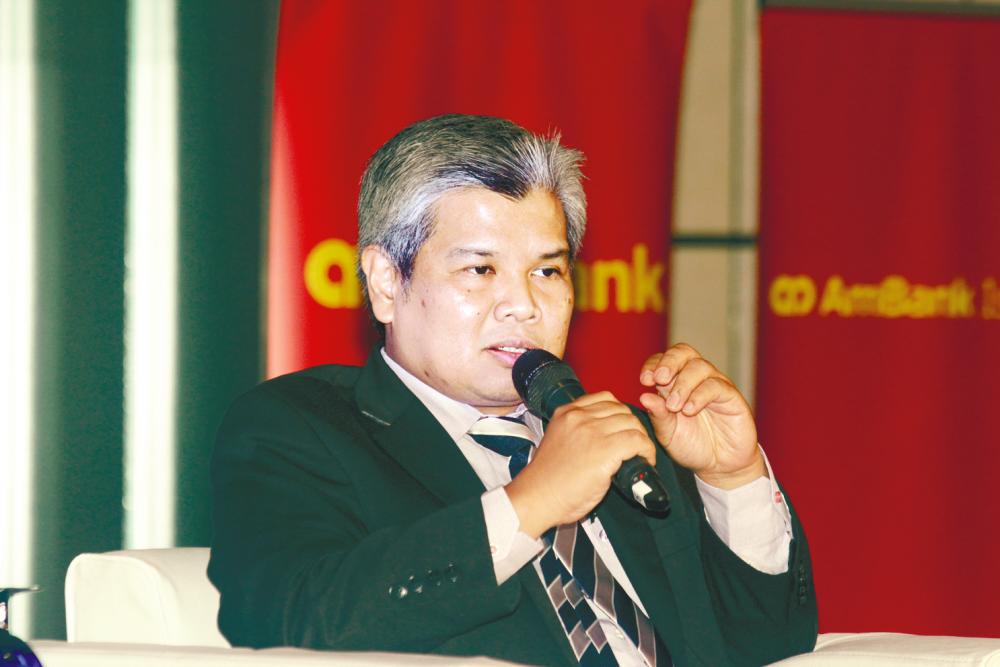KUALA LUMPUR: The prospects of the halal business are expected to be challenging this year given the global economic landscape, said Halal Industry Development Corp (HDC) vice-president of industry development Hanisofian Alias (pix), who urged small and medium enterprises (SMEs) to up their game to be more competitive.
“Although there is no direct impact to our SMEs here, there is some indirect impact, such as in the drop of crude palm oil price, as halal products use palm oil to replace animal fat. When this happens, this doesn’t just affect Malaysia, but Indonesia and other countries as well, so the competition will be greater,” he told reporters today at the AmBank BizConference Be-yond Financing Series – Halal Chapter here.
He said the government is trying to advocate the use of technology and the Fourth Industrial Revolution which are important to increase the productivity level, reduce operational costs and make the prices of products more competitive. Technology in production will also increase the quality of products and its acceptance.
“The halal industry is growing continuously. We see demand and interest from overseas for halal products and services increasing day by day. We should also take into consideration that when such a big opportunity like this emerges, there is a lot of competition.
“Whether SMEs like it or not, they have to invest in certain aspects, such as in technology or obtaining more information, so that they can compete better globally,” Hanisofian said.
He said there are opportunities for Malaysian SMEs in the halal business in non-Muslim majority countries thanks to Muslim tourism.
“Sometimes many halal products of our SMEs have difficulties of penetrating the large retail markets because of competition. However, through halal tourism, there are small retailers that need halal products which are not that big but are suitable for our SMEs to penetrate. Most of these opportunities are available in non-majority Muslim countries because Muslims travel to those places.”
For example, he said there are three million Muslim tourists a year and although this is not as big as the global market, it is a good market for Malaysian SMEs to tap into. “We have to complement each other (with non-Muslim majority countries).”
Hanisofian said HDC wants more Malaysian SMEs to collaborate with their counterparts in those countries.
Citing Japan as an example, he said many small and medium businesses there are not continued by the next generation. Malaysian SMEs can collaborate with the Japanese SMEs to acquire technological knowhow and provide new markets to the SMEs in that country.
Hanisofian said Malaysia is targeting 10% growth in halal export value this year to achieve its RM50 billion target by 2020, after export growth fell last year to RM40 billion. The main halal products that Malaysia exports are food & beverage and ingredients (palm oil products).
Hanisofian said HDC is targeting RM15 billion investments in halal parks by 2020, from RM13.3 billion last year. In addition, the Halal Masterplan 2.0 is expected to be introduced in the third quarter this year.













